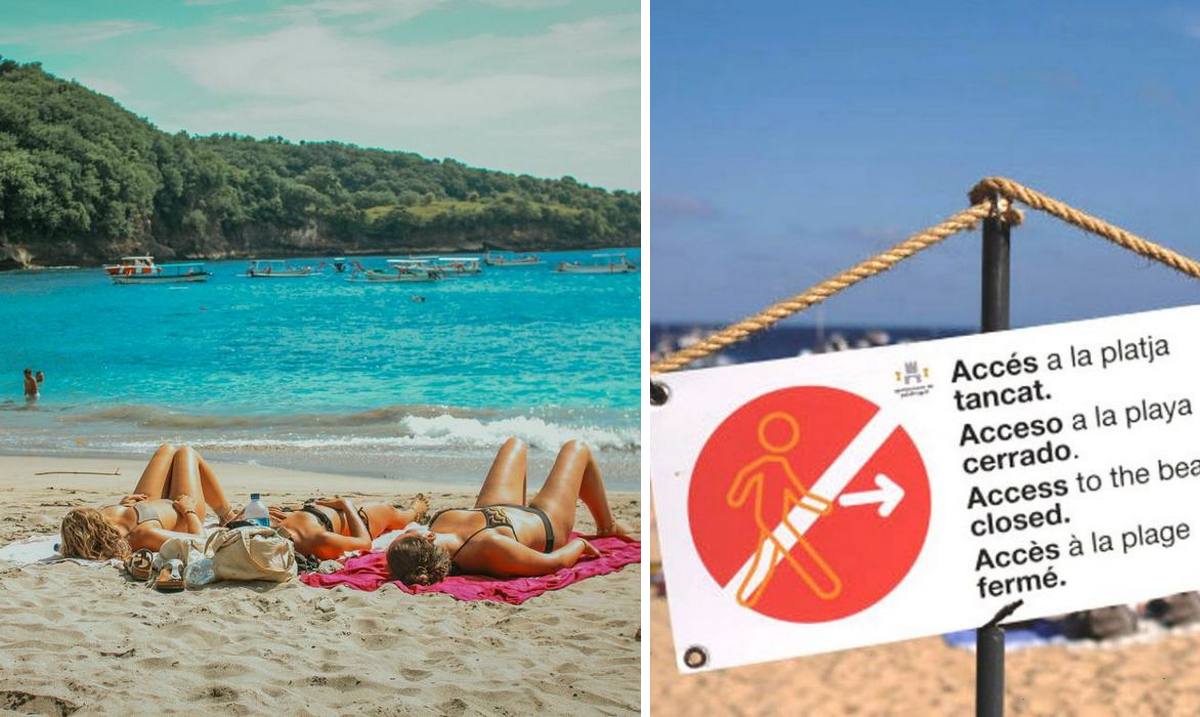From January 16, 2023, a long-awaited law will come into force that prohibits tourists and locals from smoking on the beaches of the popular resort of Tenerife, which is part of the Canary Islands in Spain.
Tenerife is one of the best tourist destinations for many travelers. However, already this month, some smokers will have to put up with strict new rules introduced by the Santa Cruz authorities in agreement with the health ministry of the Iberian kingdom. Starting January 16 (Monday), local public beaches will be smoke-free. As noted in the Ministry of Health, the smoking ban has two goals: to reduce the risks of pollution and to help reduce the number of smokers in the country.
“To avoid the presence of cigarette butts on the sand and possible further pollution of the coast, smoking is prohibited on the beaches and bathing areas of the municipality, except places specifically authorized and marked by the Council,” the new law states. At the same time, Spanish experts do not distinguish between smoke from ordinary and electronic cigarettes, as well as hookah. A large fine awaits smokers who are caught in a prohibited activity in one of the public places of the resort.
According to representatives of the public health commission, smoking on the coast is a potential threat of pollution of the sea and sand, so anyone who leaves trash outside the garbage can or scatters cigarette butts, or chewing gum faces a fine of 2,000 euros.
Within the framework of the law, establishments such as beach restaurants and bars that have not provided trash cans and bins for their tourist clients and do not monitor the cleanliness of their territories will also be punished: in the event of a violation, they will have to pay a hefty fine of 100,000 euros.
“Owners of beach bars, kiosks, restaurants, and other hospitality establishments near or inside the beaches must act responsibly and avoid the generation of scattered garbage and must have the necessary containers for it,” the decree also said.
However, although smokers are being suppressed as much as possible in the island resort, smoking will still be allowed on some of its beaches, and to freely “smoke” with a view of the sea, tourists will need to check whether there are nearby signs prohibiting it.
As a reminder, a similar ban is currently in effect on the territory of the other Canary Islands, as well as in Galicia, Cantabria, Valencia, Asturias, Aragon, and the Balearic Islands (Mallorca, Menorca, Ibiza, and Formentera).
It is worth noting that smoking is already prohibited in Barcelona. The ban was introduced in July. Anyone caught smoking on one of the city’s beaches faces a fine of 30 euros. The following information is published on the Barcelona city website: “This ban is based on the protection of the environment and the right of citizens to use a clean public space, free from smoke and cigarette butts.” Moreover, cigarette butts are a major cause of coastal pollution and can be extremely harmful to marine flora and fauna.
In addition, several top Spanish destinations have introduced new laws for tourists and locals in recent months. Thus, the Balearic Islands, being a major center of tourism, reported strict rules governing the consumption of alcohol. This was done in an attempt to curb alcohol tourism in the country. Tourists visiting popular party destinations such as Ibiza and Magaluf are now allowed a maximum of six drinks a day at all-inclusive hotels. Booze cruises are prohibited at resorts, and bars can no longer offer unlimited drinking.
The authorities of Malaga have announced that they will fine tourists who are caught walking around the city in obscene costumes, for example, in the form of a penis or a sex doll. Surprisingly, such a costume vacation was trendy until a certain time among vacationers who came to have fun at bachelor or bachelorette parties in the Iberian country. Some were not even embarrassed by a fine of up to 800 euros — a standard government fee for improper appearance. All these new restrictions are explained by the fact that the local authorities took a course to change the resort’s image.
“Public spaces should be preserved as places where people can meet, socialize and enjoy their leisure while respecting others,” a source in the city hall told local media.
According to the expert, it is not excluded that the new rules may cause a decrease in the tourist flow in the Spanish region.

